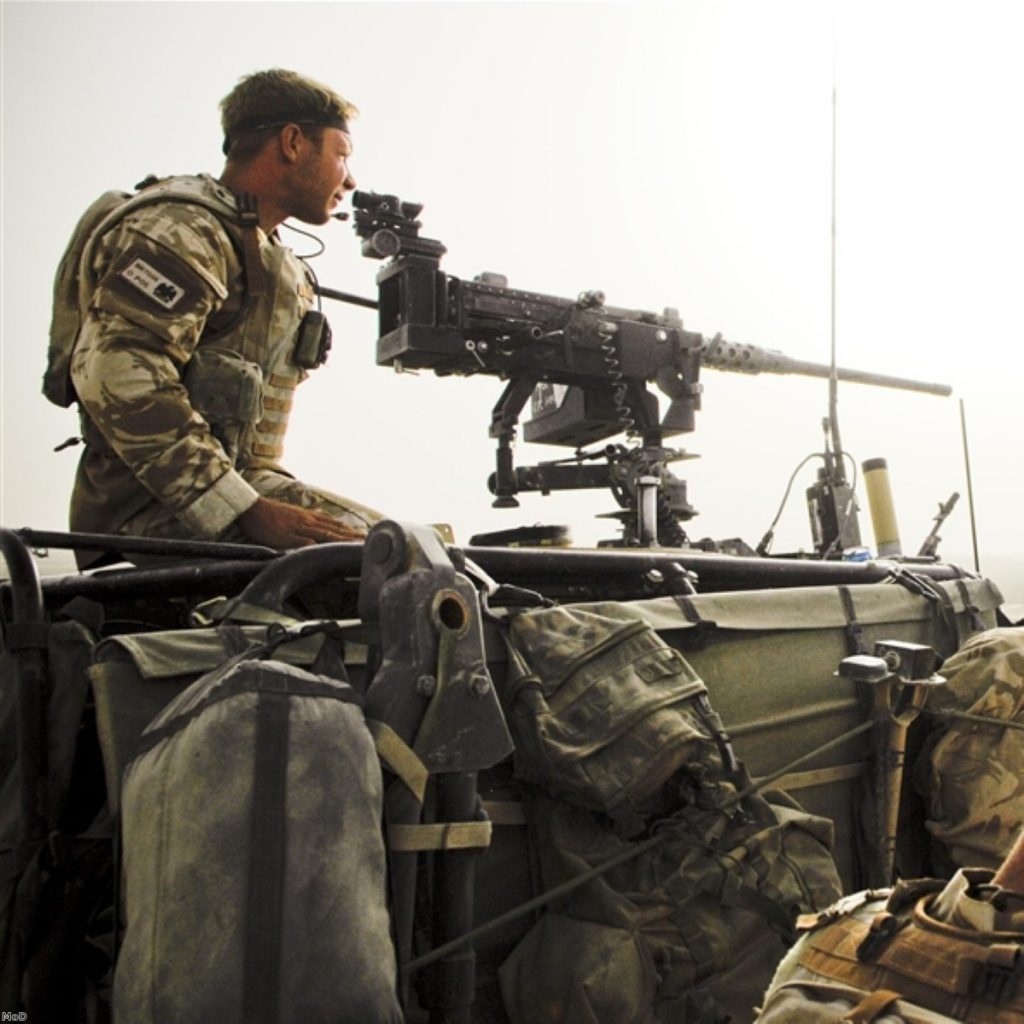Afghanistan victory an ‘existential imperative’
By Alex Stevenson
British forces must forge out a victory in Afghanistan in order to justify Nato and the armed forces’ existence, an academic has insisted.
Hew Strachan of Oxford University argued commentators must confront the military from where the country finds itself, “not from where it might like them to be”.
“Afghanistan is the theatre of war to which British troops are now committed,” he wrote in the latest edition of Survival, the journal of the International Institute for Strategic Studies thinktank.


“The war has to be brought to a conclusion that can be seen as successful, especially when that is not how the British contribution to the war in Iraq is now being interpreted. This is the most immediate priority.”
Professor Strachan argued that a failure to achieve victory in Afghanistan threatened both Nato and the “utility of military force” more generally.
He contrasted the Afghan war – which could see British involvement for 40 years, the incoming head of the Army said last weekend – with the four short-term conflicts Britain has been involved with in the last 30 years, against Argentina, Iraq, Serbia and (again) Iraq.
“War is more likely to achieve closely defined objectives than aims that are vague, open-ended and variable,” he added.
“Britain has to deliver on its aims if military force is to retain its usefulness in the eyes of the government – it is already in danger of losing that endorsement from the public. Without this, the armed forces are out of a job.”
The looming strategic defence review is likely to be dominated by the need to confront terrorism.
The government has repeatedly justified its ongoing commitment to Afghanistan on the basis that failure to fight the Taliban would create a self-haven for al-Qaida and resulting in more terror attacks on British soil.
Prof Strachan, while acknowledging that terrorism is “significant”, warns against giving it – and Afghanistan – prominence.
“The armed forces, a ‘force for good’ to use the Ministry of Defence’s (MoD) own branding, are understandably comfortable with this mission,” he wrote.
“But it is less clear why British troops should be bringing these benefits to southern Afghanistan specifically rather than to other countries, and it is reasonable to wonder whether aid workers, non-governmental organisations and other agencies would not be better fitted to the mission than soldiers.”
As a recent report by the Institute for Public Policy Research suggested, Britain’s armed forces should be integrated into a wider security framework stretching across government.
Prof Strachan agrees. He is concerned by the lack of a separate funding stream for the comprehensive approach uniting the Foreign Office, Department for International Development and MoD.
The result, he says, is a “story of compromise” with the Cabinet Office unable to coordinate the activities of departments with distinctive agendas, policies and philosophies.
He has a simple demand for Gordon Brown as a result.
“Either the prime minister has to assume responsibility for security strategy, as he would in the event of major war, or he has to appoint a minister with real clout,” he finished.
“There can be no strategy until we are able to answer the question as to who in Britain is responsible for it.”












